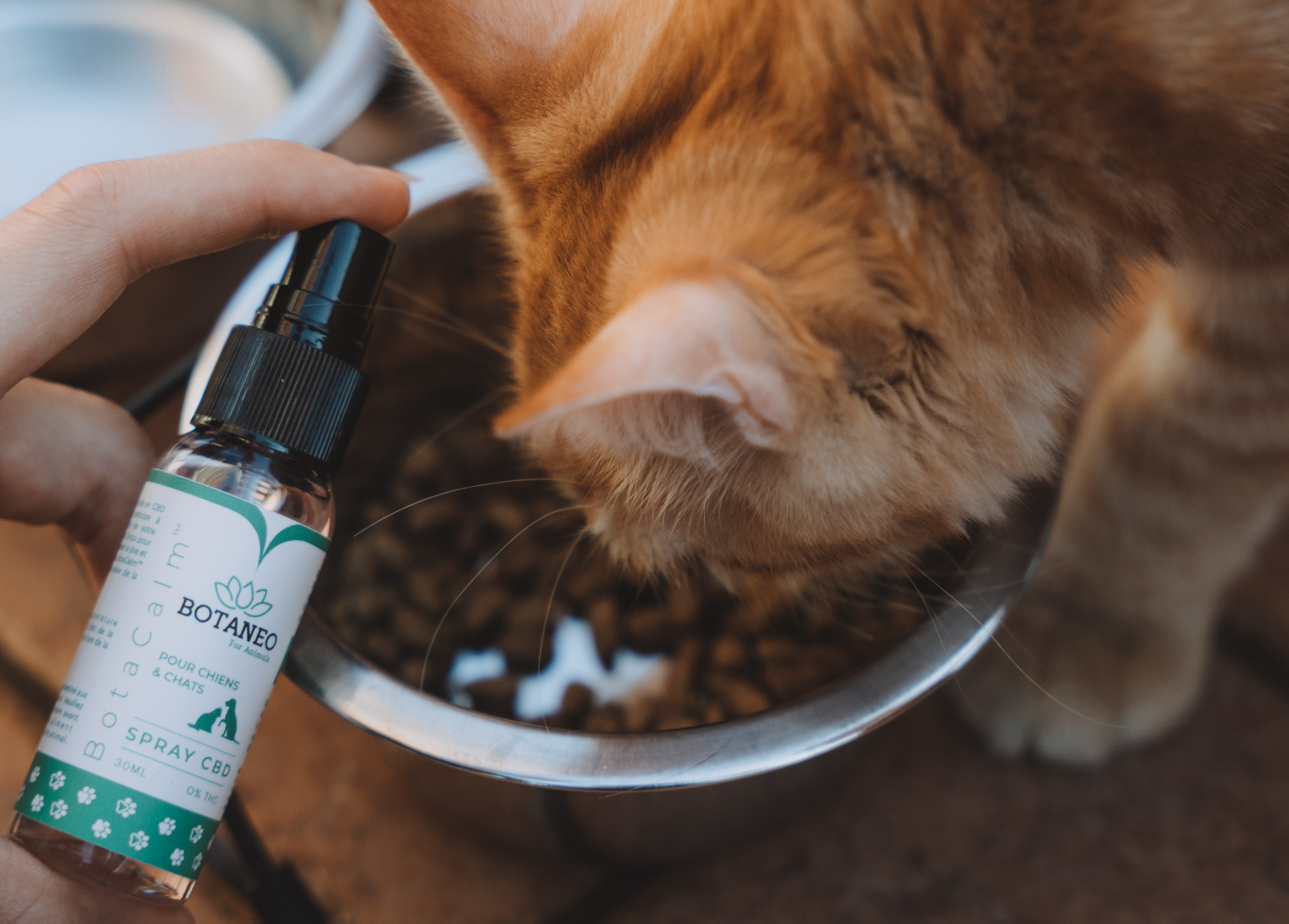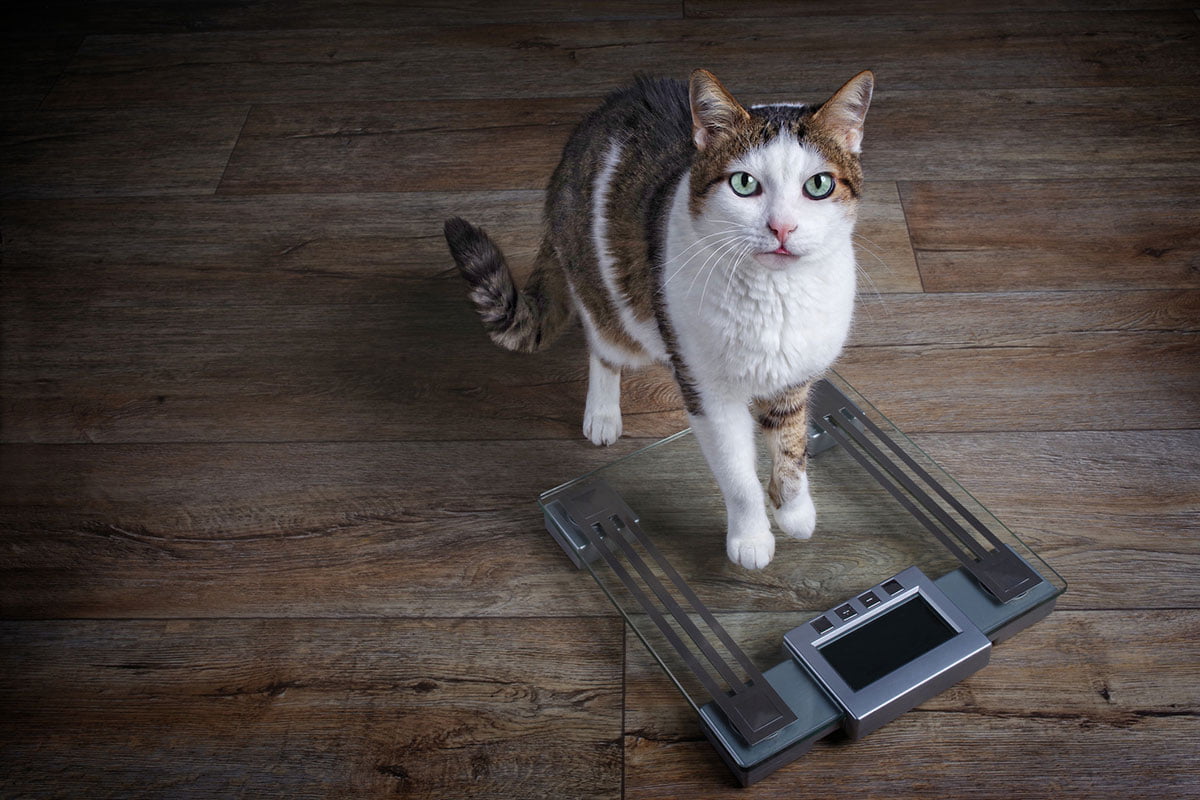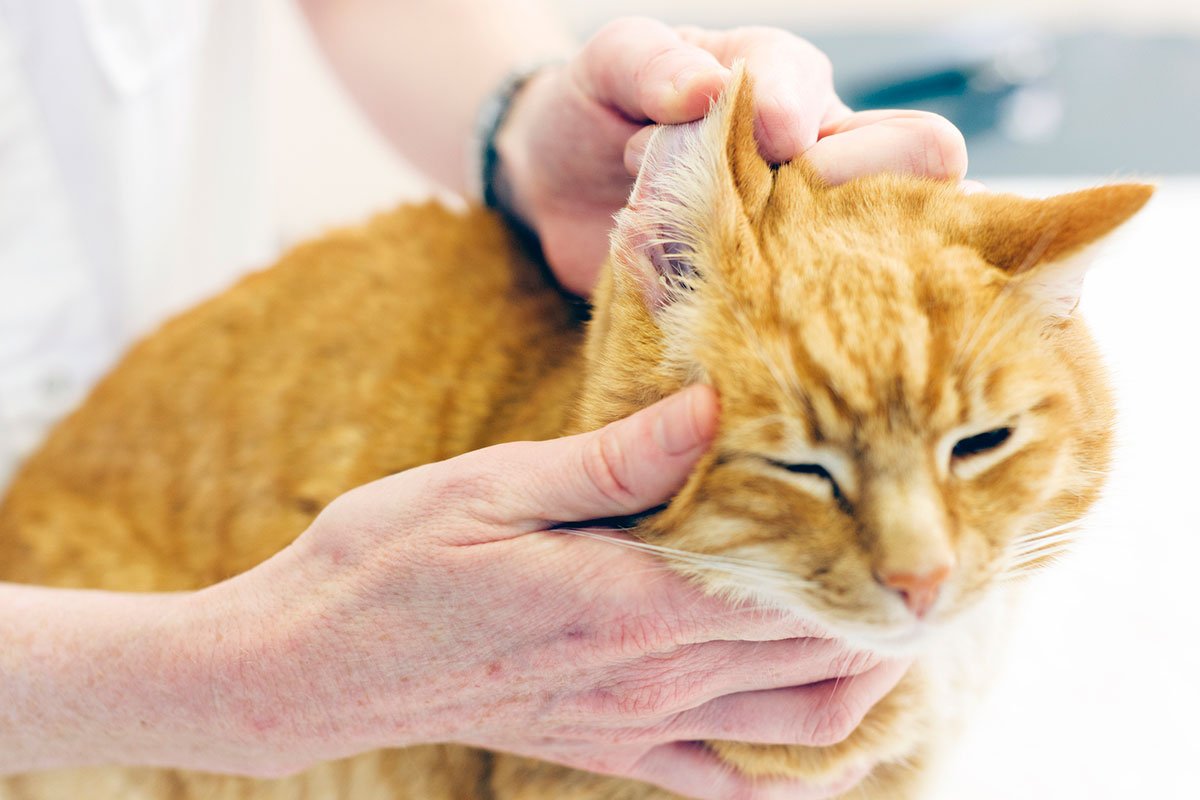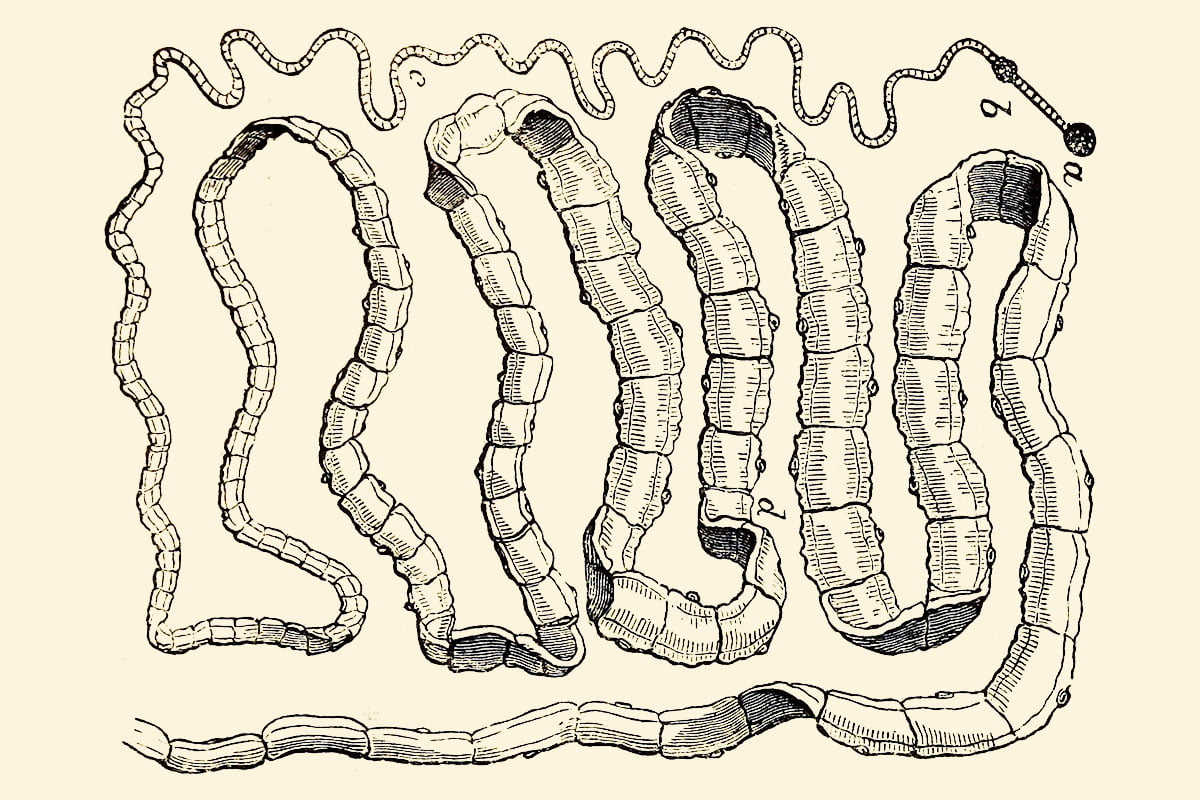Tapeworms are gross, flat, segmented worms that live and reproduce inside your cat. They infest your poor feline friend’s intestines and can sometimes make it into their stomach, which causes even more issues for your cat.
Tapeworms are a common infestation in house cats, unfortunately. The good news though, is that tapeworms aren’t overly dangerous and they are easily treated.
Needless to say, though, it is important to rectify a tapeworm infection in your cat as soon as possible. So, how do you get rid of tapeworms in cats?
What Are Tapeworms?
 First, it is important to know what tapeworms are. Tapeworms are worms that are ingested by your cat as eggs and then, they are released and reproduce. There is nothing pleasant about these flat little disgusting Platyhelminthes (flatworms).
First, it is important to know what tapeworms are. Tapeworms are worms that are ingested by your cat as eggs and then, they are released and reproduce. There is nothing pleasant about these flat little disgusting Platyhelminthes (flatworms).
The tapeworm species are cousins to the roundworm and the ribbon worm but they are not the same. Thankfully, although more common, tapeworms are the easiest of the three to treat.
How do Cats Get Tapeworms?
There are a few different ways that cats can get tapeworms. The most common of which is by eating infected flea larva, after having fleas.
If a flea lays infected flea larva on your cat, there will be at least one tapeworm egg inside the fleas. If your cat grooms themselves, they will often ingest the flea larva to get it off their coat. Once the flea is eaten, the larva (or the infected flea, by the point it is ingested) will be digested. The tapeworm egg will not. Instead, the tapeworm egg will comet to rest inside a cat’s intestines. From there, the egg will hatch and the tapeworm will survive by stealing nutrients from the host cat. Eventually, the tapeworm will multiply, as it is hermaphroditic. This means that a singular tapeworm has both male and female organs, making it possible for the worm to reproduce by itself. When this happens, the cat will become infected with multiple tapeworms.
Another way that your cat can get tapeworms is if they eat or drink something that is contaminated with tapeworm eggs. Thankfully, this is not very common. However, if your cat is contaminated via ingesting something that is infected, the same process will occur as if your cat ate flea larva.
What are the Symptoms of Tapeworms?
For pet parents who have never had a sick cat, you need to be aware that cats do not like to show their weaknesses; even to their humans. This is an instinctual response that your cat has. Regardless of your cat’s personality, it does not want to appear weak. Therefore, they hide their illnesses.
So, it is up to you as the pet mom or dad to watch your cat closely to catch any changes in your cat’s behavior, routine, or stools. Here are the most common symptoms of cats with tapeworms:
How to Get Rid Of Tapeworms
Now that you know what tapeworms are and how to know if your cat is infected, here is how to get rid of them.
Go to the Vet
 It is incredibly important for your cat to see a veterinarian right away if you suspect there is something wrong with your feline companion. Even if the tapeworms are not visible but your cat is acting weird or losing weight, your cat’s vet will be able to check their stools and confirm your suspicions.
It is incredibly important for your cat to see a veterinarian right away if you suspect there is something wrong with your feline companion. Even if the tapeworms are not visible but your cat is acting weird or losing weight, your cat’s vet will be able to check their stools and confirm your suspicions.
If your cat does have tapeworms, your vet will likely give you deworming medication. This will cause the tapeworms to dissolve in the intestines. This can be administered in an injection or in a pill form. Dewormer usually kills all the adult tapeworms within 24 hours and usually does not negatively affect your cat. (So, if symptoms of tapeworms persist, contact your vet right away.)
In some cases, you may need to bring your cat back for another treatment, in 3 to 4 weeks. This would be in case any remaining larvae hatched, the second batch of dewormer would be to get rid of any surviving tapeworms. However, it is usually at your vet’s discretion as to whether your cat will need another round of dewormer.
Prevention is the Best Medicine
The best way to protect your cat is to protect them from getting tapeworms in the first place. Of course, this is not always a foolproof plan. Sometimes, despite your best efforts, your cat still gets tapeworms. However, being vigilant in these preventative measures will help significantly lessen your cat’s chances of contracting a tapeworm infestation:
Use Flea Treatment Regularly
Flea treatment is the best defense against tapeworms, as fleas need to be a part of their life cycle for tapeworms to be spread. So, even if your cat ingests something besides fleas, your cat was in an area where fleas were around at the time they ingested the contaminated food or drink.
Using flea treatment will help keep fleas away from your pet which will, in turn, protect them against many other flea-related complications, including but not limited to tapeworms.
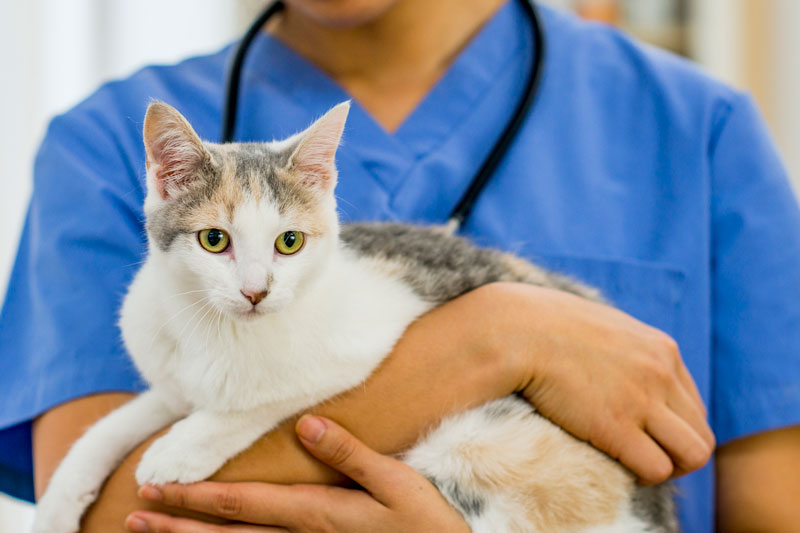
Visit Your Vet Annually
If your cat goes to regular checkups, you will be able to keep up on their flea medication easier and they will be thoroughly checked over. So, if your cat does contract a tapeworm infestation, your vet can catch it before it becomes a problem for your cat.
In summation, if your cat contracts a tapeworm infection, it is imperative that you get rid of the infection immediately. However, you do not have to worry about the long term wellbeing of your cat. Once the infection is gone, your cat will be perfectly fine.


